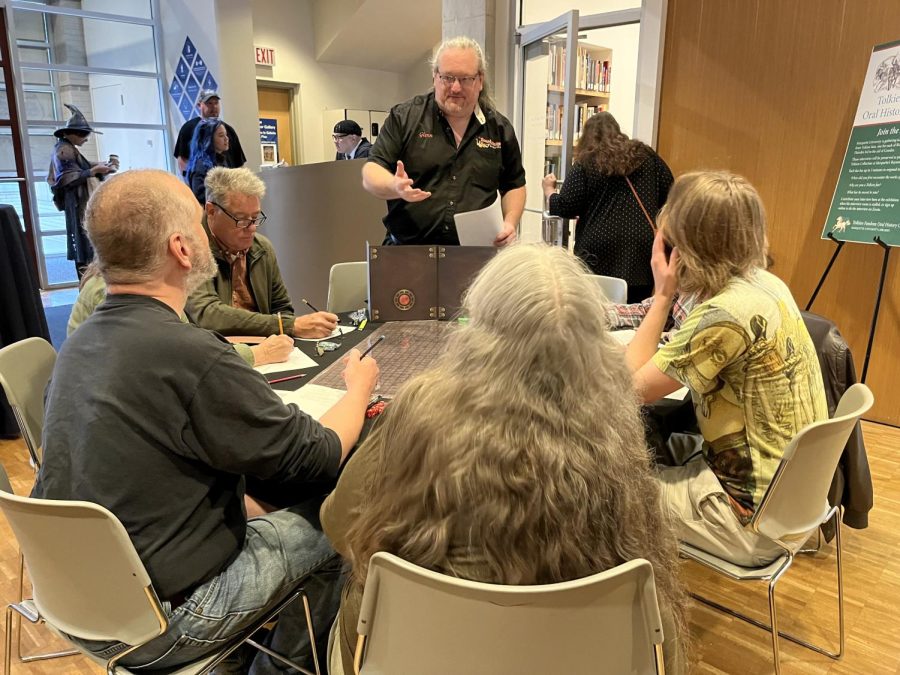A massive dragon flies high above the countryside, its shadow cast over a group of seven adventurers. In one fell swoop, it bows its head and plummets toward the ground in a fit of rage. All hope is lost.
In a last-ditch effort, one of the adventurers holds up her sword … and, as the dragon swoops down, slices it in half.
Seven players, reacting to the sight of one of them rolling a 20, burst out of their seats. Their party lives to see another day.
Scenes like this are common in Dungeons & Dragons, a tabletop fantasy role-playing game largely inspired by the works of J. R. R. Tolkien, the author of “The Lord of the Rings.” Stemming from Tolkien’s love of fantasy worlds and storytelling, the Haggerty Museum of Art hosted a D&D event last Saturday for players and spectators alike.
“All of our public programs that happen in the museum are aligned with our exhibitions that we have on view, so almost always we’re starting with exhibitions, themes from the exhibitions and thinking [who] we can invite them in or go out to where they are and do this kind of cross-pollination of ideas,” Christine Fleming, Manager of Community Engagement for the Haggerty, said.
The event featured a handful of Marquette alum doing everything from heading campaigns to speaking on what D&D meant to them. James Lowder, a Marquette alum and freelance writer who was a designer for D&D when it was owned by Tactical Studies Rules, said he loved D&D because of its storytelling component. Lowder said the thing that keeps D&D from being a strictly “narrative exercise” and instead a game are the actions taken by the game master and the game’s inherent set of rules.
“Because of the mechanics involved with the game and the random elements of the dice, you don’t have entire control over where that story goes. You’re making that story up on the fly,” Lowder said.
Lowder said he is thankful for the breadth that his education had, as it became very useful in game design, even before that was a field offered in any universities.
“My studies at Marquette were really ideal for going ahead and working on a game like Dungeons and Dragons because of all of the general liberal arts classes that I took,” Lowder said. “The research skills that I developed and the ability to take on new topics and explore them in depth and come up with creative ideas from that research have all been incredibly important in what I do.”
Fleming said she was happy with the event’s turnout, despite the fact that the audience was different than she expected.
“I think when we envisioned it, we thought it would be a lot of younger folks that are coming and there are some under 18,” Fleming said. “The majority are just sort of college student age or just out of college that maybe are looking to reconnect or play with a group if they’ve lost their group. There’s [grandparents] and grandkids as well.”
Despite never playing D&D or hosting an event like this before, Fleming said she was glad the event was as popular as it was.
“I’m glad that so many people are registering as spectators,” Fleming said. “I have never played or seen the game played in-person, but my brother has played [it] my whole life. I’m hoping that people are open to seeing it and that it sort of opens their minds and break any preconceptions that they have about the game.”
This story was written by Will Eikenbary. They can be reached at will.eikenbary@marquette.edu.


